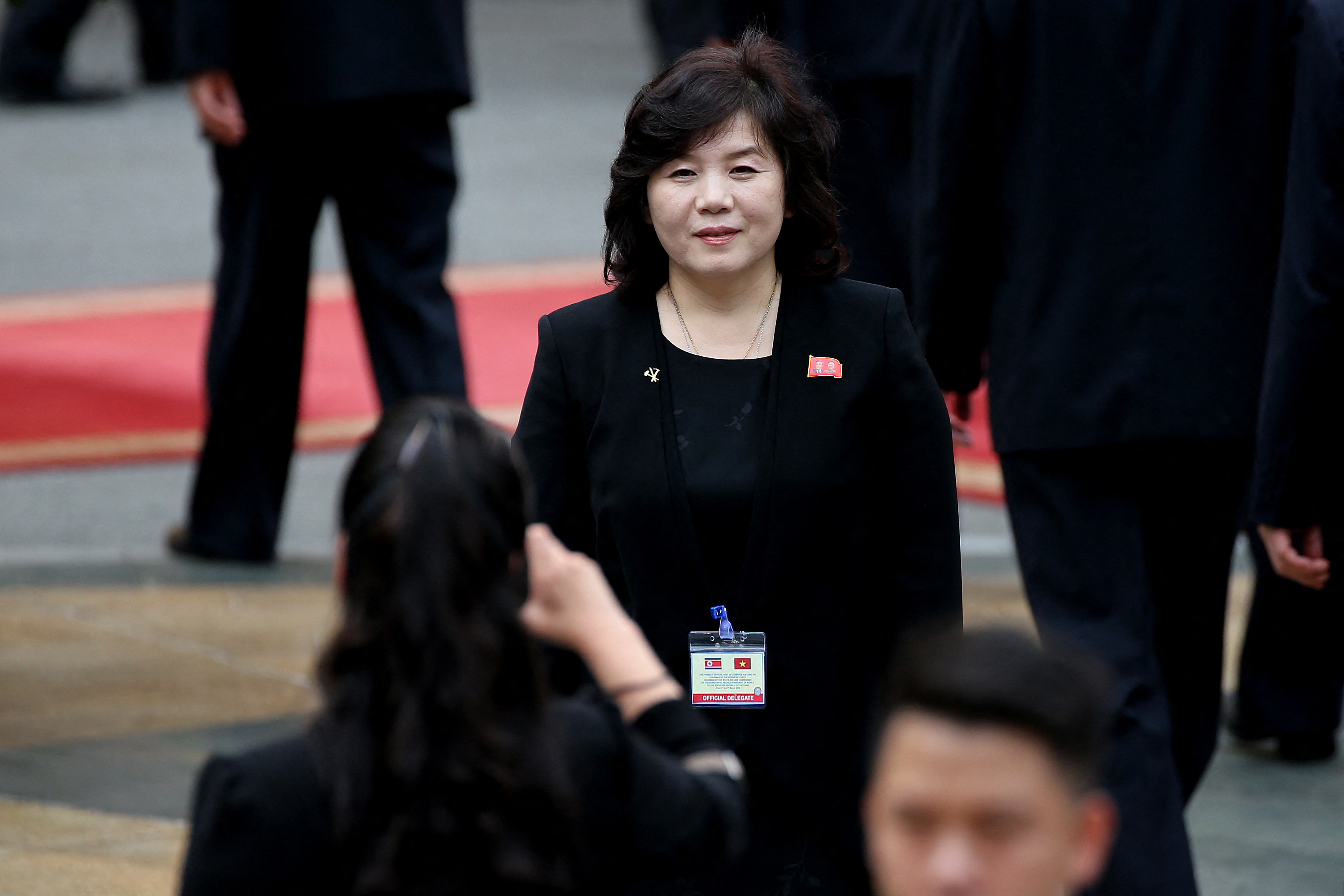SEOUL - US Secretary of State Antony Blinken on Thursday (March 18) said a review of the Biden administration's North Korea policy would be completed "in the weeks ahead" and that Washington was working closely with its allies, South Korea and Japan, to come up with a coordinated approach in dealing with the nuclear-armed state.
His comments came as Pyongyang rejected fresh nuclear talks and rebuked overtures by the United States as a "cheap trick" to stall for time.
"The goals of this (US) policy are clear," Mr Blinken said at a press conference after a joint meeting involving US Secretary of Defence Lloyd Austin and their South Korean counterparts - Foreign Minister Chung Eui-yong and Defence Minister Suh Wook.
"We are committed to the denuclearisation of North Korea, reducing the bigger threat that (it) poses to the United States and our allies, and improving the life of all Koreans including the people of North Korea who continue to suffer widespread and systematic abuses under the hands of a repressive government," said Mr Blinken.
Mr Chung said the two sides reached a consensus in three key areas.
First, both recognised that nuclear North Korea was the "most immediate issue" which they must resolve in close coordination. Second, they would need to make the "best diplomatic efforts" to resolve it in a peaceful manner.
And third, the US and South Korea should be "fully coordinated" in their stance towards Pyongyang.
The comments by the two top diplomats came hours after North Korea's First Vice-Foreign Minister Choe Son Hui reiterated in a statement carried by the state-run Korean Central News Agency that no "contact or dialogue of any kind can be possible unless the US rolls back its hostile policy" towards the North.
She also denounced recent diplomatic efforts by Washington to reach out to Pyongyang as a "cheap trick" to buy time.
An atmosphere for "both parties to exchange words on an equal basis" must be created before dialogue could resume, she added.
Ms Choe was the second senior official in Pyongyang to respond to the US in a week, after North Korean leader Kim Jong Un's powerful sister, Kim Yo Jong, on Tuesday warned Washington against "causing a stink at its first step" - a reference to the first visit to South Korea by officials from the Biden administration.
North Korea has refused to return to talks since the summit between Mr Kim and then US President Donald Trump broke down in Hanoi in 2019 over differences over sanctions relief and what constituted denuclearisation.
The pro-North administration of South Korean President Moon Jae-in, who was a mediator in the first Trump-Kim summit in Singapore in 2018, has tried but failed to revive nuclear talks with the Pyongyang regime.
Dr Bong Young-shik of Yonsei University's Institute for North Korean Studies saw Ms Choe's remarks as a signal ahead of the US-South Korea meeting, meant as a "a very strong message to the Biden administration that the road to negotiations, if it ever takes place, will be not easy".
The US, on the other hand, has responded by signalling that it would not engage with North Korea alone, but rather, together with its allies, South Korea and Japan, Dr Bong told The Straits Times.
He noted that Mr Blinken did not directly address Ms Choe's remarks during the press conference.

When asked, Mr Blinken said he was aware of the news but "what I'm most interested in right now are the comments and thoughts of our allies and partners, which is why we're here, as we complete our review so that's what we're focused on".
The message to the North Korean leader, according to Dr Bong, was: "Do not try to drive a wedge among us and think you can directly talk to us like you did to Donald Trump."
Ewha Womans University's associate professor of international studies Leif-Eric Easley said Pyongyang was to blame for the current stalemate.
"North Korea accuses the US of stalling for time when it is the one doing so," he told The Strait Times. "Pyongyang is trying to hide its weaknesses and demand unilateral concessions."


